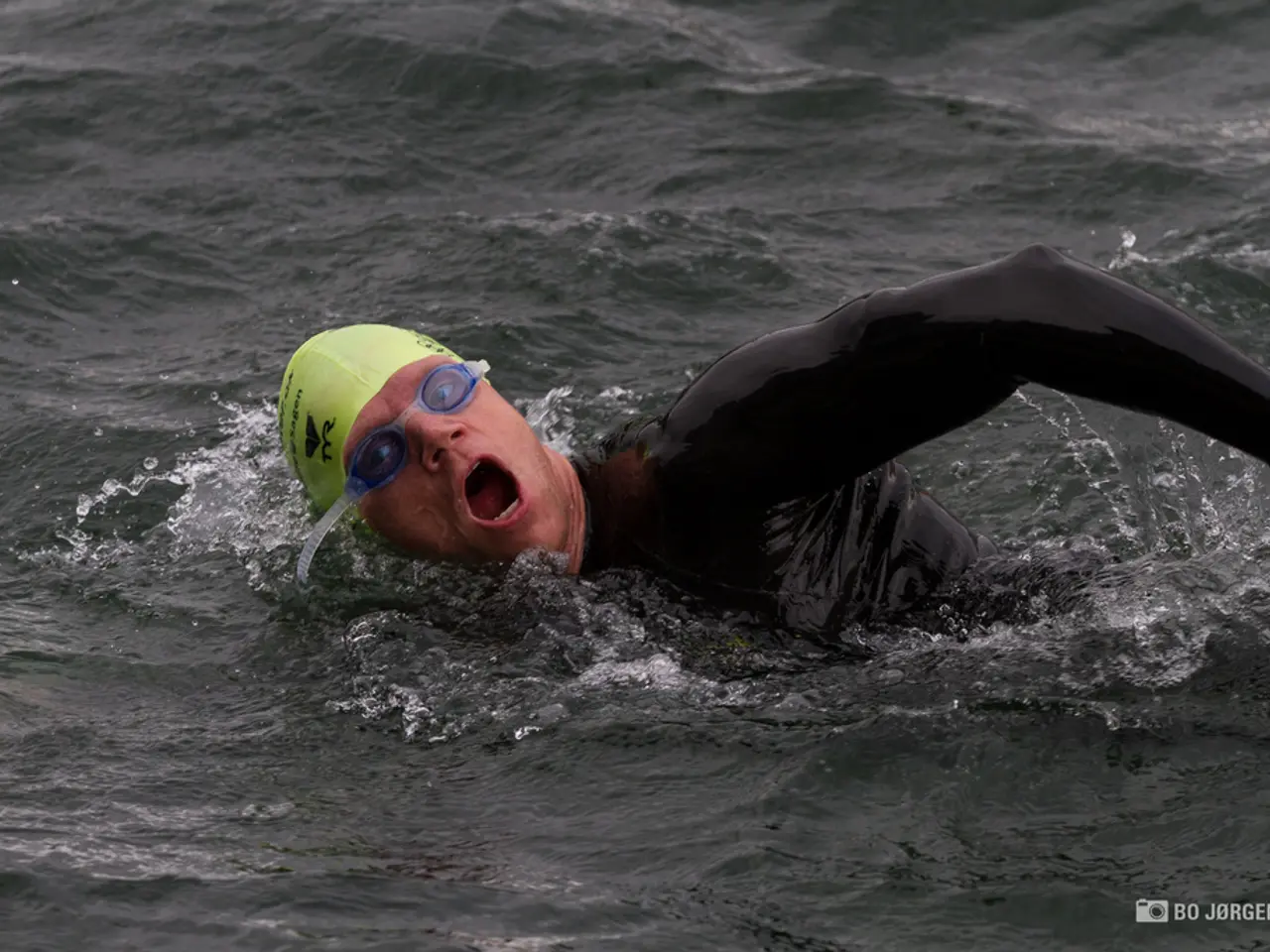Hyponatremia Symptoms and Underlying Causes: A Comprehensive Overview
Hyponatremia, a condition characterized by abnormally low levels of sodium in the blood, can lead to serious health complications. Here's what you need to know about this condition, its causes, symptoms, and how to prevent it.
Hyponatremia is defined as a sodium level below 135 milliequivalents per liter in the blood. Severe cases, where levels drop below 125 millimoles per liter, can be life-threatening.
Several conditions and factors can cause hyponatremia, including loss of sodium and fluids due to severe vomiting or diarrhea, certain medications like diuretics and nonsteroidal anti-inflammatory drugs, water overload from excessive drinking, and diseases affecting water and sodium balance such as kidney disease, liver disease, heart failure, and hormone disorders like Addison's disease and hypothyroidism.
Symptoms of hyponatremia can range from mild to severe. Mild to moderate cases may not cause symptoms, but if they occur, they can include headache, fatigue, low energy, nausea or vomiting, low blood pressure, dizziness when standing up, restlessness, irritability, loss of appetite, and rhabdomyolysis (skeletal muscle tissue death). More severe symptoms include lethargy, confusion, seizures, and loss of consciousness, which require immediate medical attention.
Preventing hyponatremia involves avoiding excessive water intake, particularly during intense exercise, consuming sports drinks to maintain electrolyte balance, avoiding the recreational drug ecstasy, seeking treatment for underlying medical conditions, and discussing medications with a doctor.
Treatment for hyponatremia depends on the severity of the condition and its cause. Mild to moderate cases may be treated by drinking less and adjusting or switching medications. Severe cases often require hospitalization and an intravenous sodium treatment. In addition, treating the underlying cause is essential for a full recovery.
It's important to note that hyponatremia resulting from ecstasy use can be fatal. Therefore, it's crucial to avoid this recreational drug.
The outlook for people with low sodium levels depends on the severity of the condition and the underlying cause. Acute hyponatremia, which develops quickly, is more severe than chronic cases and may lead to serious brain swelling that can cause permanent disability or death.
If you suspect you or someone else has hyponatremia, seek immediate medical attention. In case of an emergency, call an ambulance or go to the nearest emergency room.
[1] Mayo Clinic. (2021). Hyponatremia. https://www.mayoclinic.org/diseases-conditions/hyponatremia/symptoms-causes/syc-20368177 [2] National Kidney Foundation. (2021). Hyponatremia. https://www.kidney.org/atoz/content/hyponatremia [3] Cleveland Clinic. (2021). Hyponatremia. https://my.clevelandclinic.org/health/diseases/17097-hyponatremia [4] NHS. (2021). Hyponatremia. https://www.nhs.uk/conditions/hyponatremia/ [5] MedlinePlus. (2021). Hyponatremia. https://medlineplus.gov/ency/article/000766.htm
- A sodium level below 135 milliequivalents per liter in the blood is indicative of hyponatremia, a condition characterized by abnormally low levels of sodium.
- Severe hyponatremia, where levels drop below 125 millimoles per liter, can be life-threatening.
- Loss of sodium and fluids due to severe vomiting or diarrhea can cause hyponatremia.
- Certain medications like diuretics and nonsteroidal anti-inflammatory drugs can also lead to hyponatremia.
- Water overload from excessive drinking can cause hyponatremia as well.
- Diseases affecting water and sodium balance such as kidney disease, liver disease, heart failure, and hormone disorders like Addison's disease and hypothyroidism can cause hyponatremia.
- Headache, fatigue, low energy, nausea or vomiting, low blood pressure, dizziness when standing up, restlessness, irritability, loss of appetite, and rhabdomyolysis (skeletal muscle tissue death) are symptoms of mild to moderate hyponatremia.
- More severe symptoms of hyponatremia include lethargy, confusion, seizures, and loss of consciousness.
- Preventing hyponatremia involves avoiding excessive water intake, particularly during intense exercise.
- Sports drinks can help maintain electrolyte balance during exercise to prevent hyponatremia.
- Ecstasy, a recreational drug, can cause hyponatremia and can be fatal.
- Treating underlying medical conditions is essential for preventing and treating hyponatremia.
- Discussing medications with a doctor is also crucial in preventing hyponatremia.
- Mild to moderate hyponatremia may be treated by drinking less and adjusting or switching medications.
- Severe hyponatremia often requires hospitalization and an intravenous sodium treatment.
- Treating the underlying cause is essential for a full recovery from hyponatremia.
- Acute hyponatremia, which develops quickly, is more severe than chronic cases and may lead to serious brain swelling.
- If you suspect you or someone else has hyponatremia, seek immediate medical attention.
- In case of an emergency, call an ambulance or go to the nearest emergency room.
- The Mayo Clinic provides information on hyponatremia at [1].
- The National Kidney Foundation also provides information on hyponatremia at [2].
- The Cleveland Clinic offers information on hyponatremia at [3].
- The NHS provides resources on hyponatremia at [4].
- MedlinePlus offers comprehensive information on hyponatremia at [5].
- It's important to prioritize cardiovascular health, as hypertension or cardiovascular disease can increase the risk of developing hyponatremia.
- Mental health conditions such as depression and anxiety can also contribute to poor water and sodium management, potentially leading to hyponatremia.
- Achieving a balance of nutrition, fitness, and mental health can help prevent various chronic diseases, including hyponatremia.




